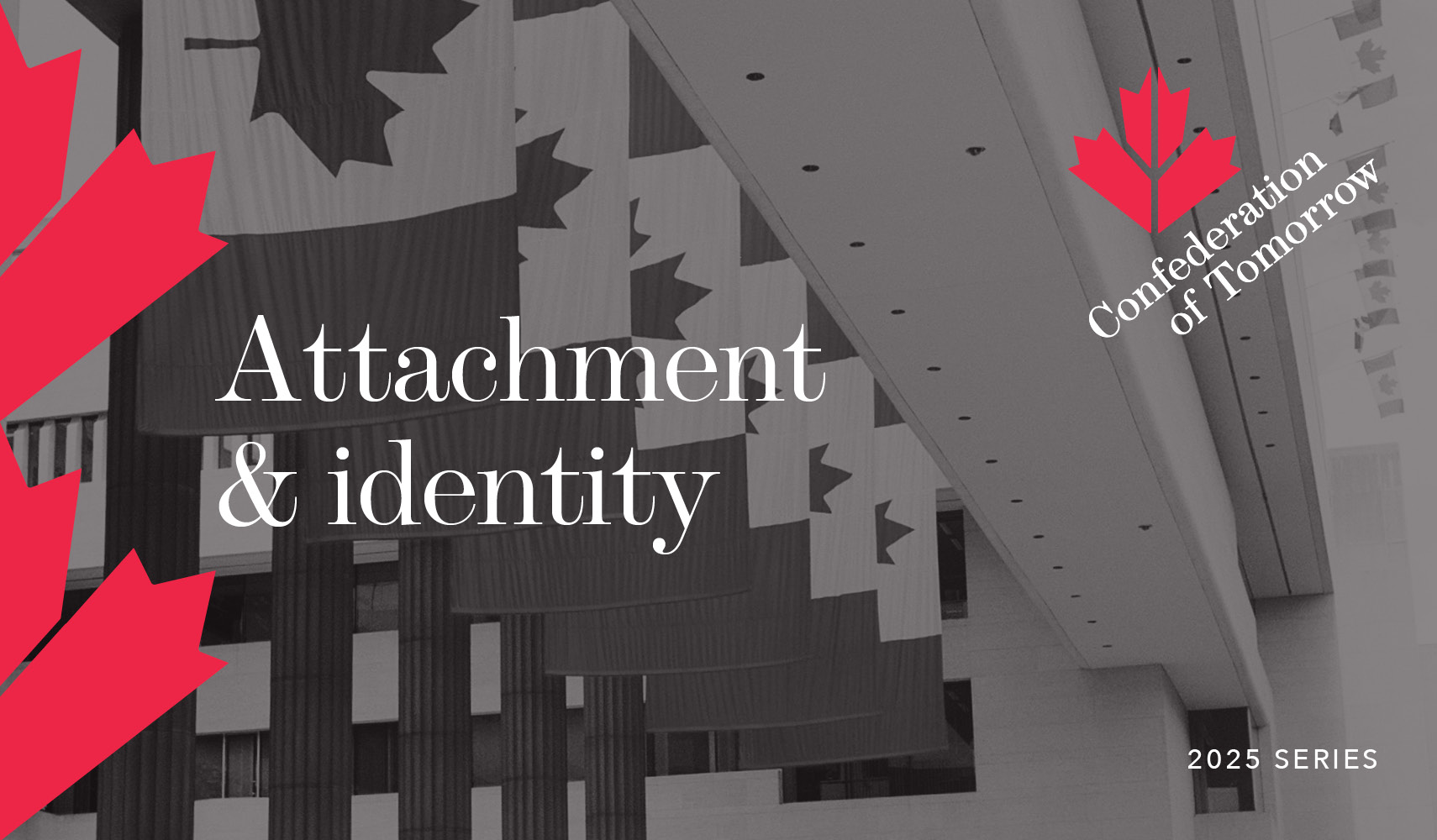Attachment and Identity (2025)

Attachment and Identity (2025)
The issues of Canadian identity and unity came to the fore in the first few months of 2025, in the face of the threatening policies and pronouncements of returning U.S. president Donald Trump. How did these events impact Canadians’ feeling of attachment to their country? And how, if at all, did it shift the extent to which identification with Canada overshadows other regional or community identities?
The 2025 survey finds that there has been a modest increase in the strength of the Canadian identity. In some cases, however, the trend has been unfolding for several years, pre-dating the most recent events relating to Canada-U.S. relations. And, despite this change, Canadians remain as likely to feel an attachment to their province or territory as they are to feel an attachment to the country.
Key findings
- Almost nine in ten Canadians (87%) say they feel either very or somewhat attached to Canada. A similar proportion (85%) express the same degree of attachment to the province or territory in which they live.
- Between 2024 and 2025, the proportion that say they are very attached to Canada has increased by four percentage points, from 51 to 55 percent.
- Four in five Canadians (78%) are at least somewhat attached to both Canada and to their province or territory.
- Among people who identify as Indigenous, three in four (76%) say they feel very or somewhat attached to their Indigenous nation or community. Attachment is higher among those who identify as First Nations (80%).
- In almost every province, the proportion of residents who are very attached to Canada is greater than the proportion who are very attached to their province. The exceptions are Newfoundland and Labrador, where residents are equally likely to say they are very attached to Canada and very attached to their province; and Quebec, where residents are much more likely to say they are very attached to their province than they are to say they are very attached to Canada.
- The proportion that considers themselves to be a Canadian only or first, rather than someone from their province only or first, has increased by six percentage points since last year, and is now higher than at any time since the Confederation of Tomorrow annual survey was launched in 2019.
- Since 2019, a shift toward the Canadian identity is especially evident in Atlantic Canada, and also in Alberta and British Columbia.
- In Newfoundland and Labrador, the proportion that considers themselves to be a Canadian only or first is, for the first time, greater than the proportion that identifies as a Newfoundlander or Labradorian only or first.
- Seven in ten (73%) of those who identify as Indigenous also express a mix of identities – identifying both as a Canadian and as an Indigenous person.
- Despite these varying identities, Canadians have one thing in common: in every region, a majority feels their province’s culture is misunderstood by the rest of the country.
About the survey:
The Confederation of Tomorrow surveys give voice to Canadians about the major issues shaping the future of the federation and their political communities. They are conducted annually by an association of the country’s leading public policy and socio-economic research organizations: the Environics Institute for Survey Research, the Centre of Excellence on the Canadian Federation, the Canada West Foundation, the Centre D’Analyse Politique – Constitution et Fédéralisme, the Brian Mulroney Institute of Government and the First Nations Financial Management Board.
The 2025 study consists of a survey of 5,391 adults, conducted between May 1 and June 16, 2025 (92% of the responses were collected between May 6 and May 29); 90% of the responses were collected online. The remaining responses were collected by telephone (both landline and cell phone) from respondents living in the North or on First Nations reserves, or from francophone respondents in New Brunswick.
This version of the report includes minor corrections made on August 29, 2025 as a result of small adjustments to the survey weights.
For more information, contact Dr. Andrew Parkin or the Environics Institute.
This project benefits from the financial support of the Research Support Program of the Secrétariat du Québec aux relations canadiennes (SQRC) / Ce projet bénéficie de l’appui financier du Programme d’appui à la recherche du Secrétariat du Québec aux relations canadiennes (SQRC).

Survey materials
Final report: Attachment and Identity (2025)
Attachement et identité - principaux constats
Survey tables
Note: the Confederation of Tomorrow uses separate weighting factors for the overall results, the results for residents of the three territories (the North), and for Indigenous Peoples. When reporting results for the territories (individually or as a region) or for Indigenous Peoples, please use the corresponding separate tables.
- Main data tables for questions covered in this report
- Data tables: the North
- Data tables: Indigenous Peoples
Like what you're reading? With our bi-monthly e-newsletter, you can receive even more with the latest details on current projects, news, and events at the institute.
Subscribe